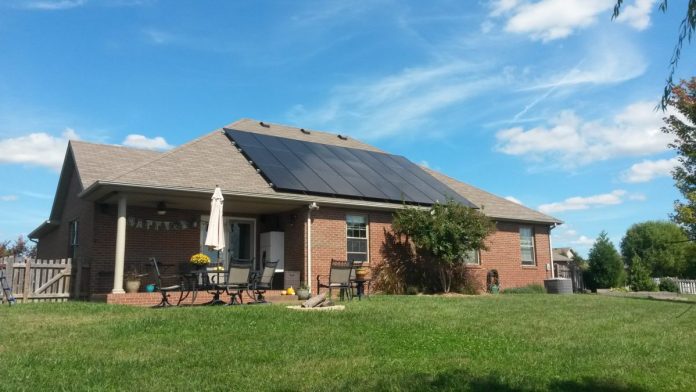Indiana passed legislation, House Bill 1196, which makes it considerably more difficult for Homeowners Associations (HOA) to prohibit residents from adding solar installations to their homes.
The law states that any homeowner who is a member of a HOA that has codified rules (adopted or amended after 2019) or previously ruled that solar installations may not be installed within the community, can petition other homeowners association members for approval to install a solar energy system on the homeowner’s dwelling unit or property.
After providing the members that they are petitioning with some required project and property specifications, they can collect signatures of approving members. If collected signatures exceed 65% of members, or the expressed amount of signatures needed to ratify an amendment under the HOA’s existing rules, the homeowner must then present the signatures and project and property information to the HOA board of directors. The board of directors, an architectural review committee, or an architectural control committee of the HOA may not deny the homeowner’s request to install the solar energy system once the signatures have been collected.
Projects may still be denied for legitimate siting and technical concerns, or if the HOA is responsible for the maintenance of the roof intended for installation. While these technical grounds for denial may exist, the law still opens up development to the nearly 400 HOAs have full or partial solar prohibitions in central Indiana alone. In many cases, the HOAs institute these policies under the guise of “maintaining community aesthetics” or to protect the value of homes in the community. A 2019 Zillow report found that homes with residential solar systems sold for 4.1% more than their non-solar neighbors.
Moreover, research from Michigan Technological University found that grid-tied solar owners subsidize their non-PV neighbors. Solar homeowners also help utilities avoid making many infrastructure investments, and shave peak demand when electricity is the most expensive.
The researchers also found that grid-tied PV-owning utility customers largely are under-compensated for their neighborliness. That’s because the value of solar eclipses both the net metering and two-tiered rates that many utilities pay for solar electricity. The research is published online for any interested parties.
This is not the first initiative of its kind to be introduced in Indiana, with proposed legislation on HOAs and solar panels in beginning in 2017.
In August 2021, Illinois passed similar legislation to House Bill 1196. That legislation rescinded the ability of community associations to ban members from installing solar on certain areas of their homes. The associations can still determine the specific configuration of said installation, so long as that decision does not lower the system’s annual estimated generation output by more than 10%. The law also significantly cut down the amount of time that association members have to wait for a response once filing their application for approval of a system with their association.






